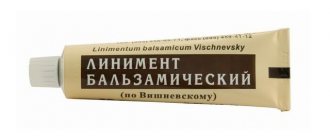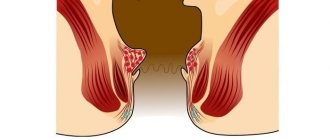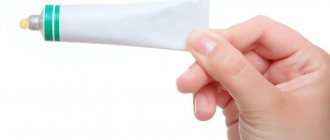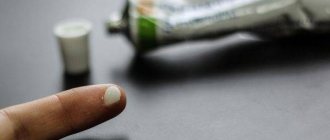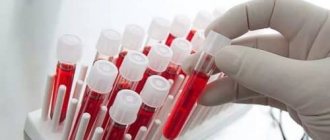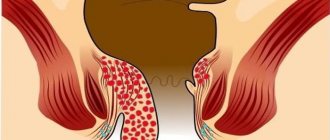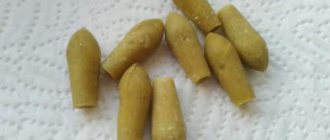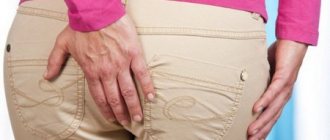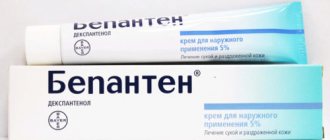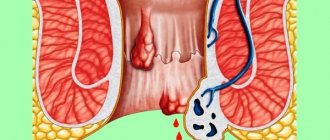Drug treatment aimed at pain relief, normalization of venous outflow, stopping bleeding, and fighting infections involves the use of analgesics, hemostatic drugs, antibiotics, which can be applied topically in the form of suppositories and ointments or in the form of injections or tablets. Injections for hemorrhoids can be administered intravenously and intramuscularly, depending on the history of the pathology. Also, using the injection of sclerosants, pathological veins are removed without surgery.
Pain relief for hemorrhoids
Injections for hemorrhoids are used if it is necessary to quickly eliminate the manifestations of the disease in the acute course of the pathology. Most often, in case of severe pain syndrome, novocaine blockade is prescribed. A series of injections are administered into the anal sphincter area. The number of injections is determined by the proctologist.
Novocaine is a synthetic drug. It is used for anesthesia before removal of hemorrhoidal veins during surgery or to relieve pain during exacerbation of hemorrhoids. The disease in its acute form can be accompanied by severe pain, which becomes unbearable as it is permanent. Pain-relieving injections may also be prescribed after hemorrhoid surgery.
It should be noted that in particularly severe cases, pain can cause shock or loss of consciousness. And pain-relieving injections can soften or completely eliminate discomfort after surgery or in any other cases. There are a large number of medications in the medical arsenal to relieve pain. The most commonly used method is novocaine blockade. The medicine is administered by injections around the affected area near the anus.
In addition to the most commonly prescribed novocaine blockade, there are other quite effective drugs with an anesthetic effect. You can quickly relieve pain in inflamed hemorrhoids using baralgin, diclofenac and lidocaine.
In the early stages of the disease, injections are rarely used; proctologists prescribe injections for chronic hemorrhoids accompanied by pain. This occurs in most cases at stages III and IV when inflammation, infection and severe pain occur.
Common injections for hemorrhoids are Ketonal injections. They are prescribed for hemorrhoids accompanied by pain and inflammation. The active substance is ketoprofen. The drug is administered intramuscularly 1-2 times. Ketonal has anesthetic, anti-inflammatory and antipyretic effects. The drug is prescribed for severe pain after hemorrhoid surgery or during an exacerbation. The drug should not be used by patients with ulcers of the digestive system, asthma, liver or kidney failure, during pregnancy and lactation. Contraindication is age under 14 years.
The non-steroidal drug diclofenac can also be used to combat pain, fever and inflammation in acute hemorrhoids. The drug is administered intramuscularly once a day in an ampoule. It is prescribed for swelling of the rectal area, which can occur in complicated cases after surgery to remove nodes. Diclofenac has an antithrombotic effect. The course of therapy is from two to five days. It should be remembered that injections to treat hemorrhoids at home can only be used as prescribed by a proctologist.
Injections for bleeding from hemorrhoids
Hemorrhoids are an unpleasant disease associated with the condition of the rectum. Bleeding is considered a dangerous phenomenon of the disease. Not accompanied by other symptoms or sensations. In cases of the primary phenomenon, most patients feel frightened - they do not know what to do. Let's consider options for hemostatic drugs for hemorrhoids, first aid and treatment procedures.
If bleeding appears, calm down, do not panic. The phenomenon does not threaten human life - it is not characterized by intensity or longevity. Blood is released if you lift too heavy a weight, appears at the end of the stool, in the bowel movements.
Important! If you notice blood on toilet paper, this should alert you and serve as an incentive to contact a proctologist. If you start treatment on time, you can avoid a number of problems in the future.
Hemorrhoids and other diseases - cancer, polyps in the intestines - can cause bleeding from the rectum. A proctologist will be able to correctly establish a diagnosis, prescribe treatment, and suggest proven methods of combating frequent blood loss.
By the time the patient gets to the hospital, precious time will pass. Measures to stop bleeding:
- The first hemostatic agent is cold. Place a compress on the bleeding nodule.
- Take the drug: Etamzilate, Dicynon, Vikasol.
- Use pills to help with bleeding.
The problem will not be solved. There is no treatment.
First on the list is applying cold. Allows you to narrow blood vessels. Prevents tissue swelling. Works as an anesthetic - a decrease in sensitivity occurs.
Cold water lotions help. Use wider gauze or bandage. Fold it in layers, moisten it, and apply it to the bleeding area. If bleeding from hemorrhoids occurs for the first time, it is advisable to use lotions with cool water. Do not do the procedure for more than 5 minutes. Please note! The method to stop bleeding is effective for external nodes and hemorrhoids.
If the nodes are localized inside, use ice candles. Roll the paper into a cone, seal the tip and fill with water. It is acceptable to use herbal decoction. Freeze. After complete freezing, it should be carefully inserted into the anus.
Do not perform the procedure if you have chronic diseases in the kidneys, bladder, or genitals. Leads to exacerbation of the disease.
The second stage is taking pills. The following drugs are produced: Vikasol, Dicynon, Etamzilat. Stops the bleeding. Sold in tablets and liquid form (solution for injection). They work well.
Tablets are used up to 4 times a day, 1-2 at a time (depending on intensity).
In advanced cases, an injection is administered intramuscularly.
These drugs have side effects. Read the leaflet carefully.
It is acceptable to use other hemostatic agents for hemorrhoids - a collagen sponge. Plate 9 mm thick. Consists of collagen with the addition of furatsilin and boric acid. The sponge is capable of absorbing liquid secretions, including bloody ones, and has a hemostatic effect. The bleeding node is disinfected and healed.
Treatment occurs quickly, without unnecessary effort. If the disease manifests itself externally, apply pressure to the bleeding area for a couple of minutes. Internal hemorrhoids require insertion with extreme care. No removal is required - the sponge dissolves.
Three stages - first aid for a bleeding hemorrhoid. Requires healing and treatment.
If there is a bleeding node, it is necessary to stop the bleeding; it is recommended to carry out a number of additional measures for healing. Replies will help. In cases of external hemorrhoids, Methyluracil helps. The ointment is applied to the wounds. For internal views, use candles of the same name.
Among the folk healing methods, sea buckthorn oil is used. Recently, candles with sea buckthorn have been widely used.
The list includes a dosage form in the form of Aurobin ointment.
Timely treatment and exclusion of hot spices and alcohol from the diet will help prevent hemorrhoids from bleeding. Need to move more.
Stopping bleeding is simply an action aimed at eliminating symptoms. To avoid relapse, we recommend undergoing a course of treatment. Tablets, ointments, suppositories will help.
The medicine is prescribed by a doctor after examination, tests, and procedures. An option for treatment and prevention is tablets. Appointed:
- if the disease has just begun;
- before the scheduled surgical intervention;
- after surgery;
- during exacerbation of the disease.
A number of drugs have been developed for preventive measures. The tablets have a beneficial effect on the body before/after surgery. Eliminate pain. Relieves inflammatory processes. Help eliminate pathologies.
They are in demand. Positive qualities of rectal preparations:
- Local application.
- Suitable for men and women.
- Almost no allergic reactions were detected.
- When used, the active components of suppositories affect the affected areas. Do not negatively affect the liver.
- Suitable for internal and external hemorrhoids.
- Used for bleeding.
The dosage form is stored in the refrigerator. The ingredients include herbs.
Ointments are often used. Ease of use has been proven by patient experience. Recommended for use by pregnant women.
- Relieves symptoms, is easy and simple to use, pregnant women and children can use Vishnevsky ointment. A compress and homemade candles are used.
- Heparin ointment. Improves blood flow and prevents the formation of blood clots.
- Stops bleeding, contains no contraindications, hypoallergenic drug - Fleming's ointment.
- Hemorrhoids with blood will be relieved by modern ointments Proctosan, Aurobin, Bezornil. They eliminate the symptoms of the disease, contain essential vitamins, and have an anti-inflammatory and healing effect.
Roman: I take the tablets as a painkiller. Candles help - they are easy to use. If you recommend drugs for the treatment of hemorrhoids with bleeding, Etamzilat suited me. Stopped the bleeding and helped relieve the inflammatory process.
Anastasia: The topic is delicate, but not uncommon. There are advertisements on TV for drugs used for hemorrhoids. I didn’t go to the hospital - I was embarrassed. I decided to treat myself. I visited websites, read recommendations and reviews. I decided to choose Proctosan. I was guided by TV advertising and people's reviews. I didn't regret it. The ointment worked immediately. A successful treatment for bleeding hemorrhoids. If earlier I tried to use traditional methods that helped for a couple of days, then after using Proctosan I forgot about the problem for a long time.
Valeria: I felt lumps in the anus and started looking for ways to solve the problem. It is necessary to get rid of hemorrhoids in the initial stage. I decided to start with traditional methods of treatment: decoctions, lotions. I realized that this is ineffective. It is necessary to stop the source of inflammation. They recommended Vishnevsky ointment - it’s cheap, but it helps. We applied compresses and saw positive results. The smell is disgusting, but if I choose smell or health, I’ll choose the latter. Inexpensive, high quality, quickly relieves problems in the anus.
Grigory: They haven’t come up with a better remedy for bleeding hemorrhoids than suppositories with the addition of sea buckthorn oil. Natural ingredients, rectal application, reasonable price, really help. I tried medications for bleeding hemorrhoids, tablets - little effect. After the pharmacist’s recommendation, I began using sea buckthorn suppositories.
source
Hemorrhoids have been present in the life of mankind since ancient times. The history of treatment for this disease goes back more than five thousand years. Translated from Greek, “hemorrhoids” means “bleeding.” And this is the main characteristic of the disease - mucous, bloody discharge from the anus.
The history of medicine contains many recipes for treating this disease. Many of them served as the basis for the development of modern drugs.
Hemorrhoids are a pathological change in hemorrhoids of various etiologies (inflammation, thrombus formation, prolapse, necrosis).
Doctors unanimously call a sedentary lifestyle one of the main causes of the disease. In addition, inflammation of hemorrhoidal veins is promoted by:
- Physical inactivity.
- Alcohol and tobacco abuse.
- Diseases of the veins of the lower extremities.
- Hereditary factor.
- Fatty, fried foods with hot spices.
- Pregnancy, childbirth.
- External (venous nodes around the anus become inflamed);
- Internal . Inflammation of the hemorrhoidal veins on the inner surface of the anus occurs.
- Combined . At the same time, symptoms of external and internal inflammation appear.
The main signs of the disease are:
- Itching, burning in the anus.
- Feeling of discomfort in the anal area.
- Pain during defecation;
- Blood clots in stool.
A disruption in the supply of venous blood to the pelvic organs can also lead to the appearance of microcracks in the venous vessels.
At the first signs of the disease, you should urgently consult a proctologist or surgeon. Based on the examination, the doctor will prescribe a course of treatment.
For minor bleeding, conservative treatment is usually prescribed:
- Diet.
- Reduced physical activity.
- Prevention of constipation.
- Hemorrhoidal suppositories, ointments, gels.
- Venotonic tablets.
- Sitz baths, washing with herbal decoctions.
In severe cases, with signs of severe bleeding, emergency surgery is indicated.
They are rightfully considered to be quite an effective remedy in the treatment of hemorrhoids. Thanks to the successfully selected composition of components, the drugs act directly on the walls of the venous vessels.
Almost all preparations for oral administration contain natural components of plant origin (Gingo Biloba, horse chestnut extract, extracts from red grape seeds). In combination with chemically active substances they give a good effect.
Most often, proctologists prescribe Detralex, Phlebodia, Venarus, Ascorutin, Diosmin.
Preparation based on flavonoids. It is used for venous circulation disorders, simple and complicated hemorrhoids. Effective in treating bleeding in the anal area.
The drug reduces capillary permeability and normalizes venous circulation. Available in tablets. The duration of use for exacerbation of hemorrhoids is no more than 7 days .
The following regimen is usually prescribed: the first four days – 3 tablets in the morning and 3 tablets in the evening; the next three days - 2 tablets in the morning and 2 tablets in the evening.
If necessary, the doctor may prescribe 1 tablet per day for a few more days.
A drug based on diosmin. It is an analogue of Detralex. Available in tablets. For hemorrhoids, 3 tablets are usually prescribed at a time in the morning, for no more than a week. Then - 1 tablet per day - for about a month.
An angioprotector that has proven itself among doctors and patients. Russian analogue of Detralex. The basis is hesperidin .
A properly selected composition allows you to take the medicine once a day, which is very convenient.
An exception is the treatment of acute hemorrhoids with signs of moderate bleeding. In this case, usually the first four days are prescribed - 1 tablet three times a day, the next three days - 1 tablet in the morning and evening.
Russian drug. An optimally selected complex of vitamins helps reduce capillary fragility and strengthen the walls of blood vessels. In case of hemorrhoidal bleeding, it promotes tissue regeneration and the formation of steroid hormones in the body.
For hemorrhoidal bleeding, 2 tablets are prescribed 3 times a day . Duration of treatment – 1 month.
A medicinal substance used for bleeding at any stage of the disease. Strengthens venous walls, prevents the formation of blood clots, normalizes the patient's condition.
In the acute course of the disease, treatment is prescribed according to the following regimen: the first four days, 6 tablets per day (3 tablets at noon and 3 tablets before bedtime); for the next three days, 4 tablets per day (2 tablets at noon and two tablets before bed).
The duration of treatment is determined by the doctor depending on the patient’s condition. For mild cases of the disease, a one-week course as part of complex therapy is sufficient.
For uncomplicated hemorrhoids and low bleeding, hemorrhoidal suppositories are prescribed. They are easy to use, have a quick effect, and are suitable for almost everyone.
Quickly absorbed into the intestinal mucosa, the suppositories act exclusively on the affected area, without putting a strain on other human organs and systems.
With proper use of suppositories, rapid relief occurs:
- Pain syndrome is relieved.
- Bleeding is stopped.
- Itching and burning in the anus disappear.
- Blood clots are reabsorbed.
Candles have differences in composition and local effects. The most popular drugs among doctors and patients are Relief, adrenaline suppositories, Gepatrombin G, Natalsid, Methyluracil.
Contains the substance phenylephrine, which helps stop bleeding from hemorrhoidal veins. Relief in the patient's condition occurs for the first time hours after the medicine enters the body. Prescribed 1 suppository 2-3 times a day, depending on the degree of bleeding.
The duration of use is determined by the proctologist.
A drug that has a powerful positive effect on hemorrhoidal bleeding, severe pain, burning and itching. It contains a hormonal substance. Therefore, it is prescribed with caution, under the supervision of a specialist.
Available in the form of suppositories and ointments. Prescribe 1 suppository 3-4 times a day. For greater effectiveness, use suppositories and ointment simultaneously. There are contraindications.
Suppositories with wound healing and regenerative properties. It is quickly absorbed into the mucous membrane and helps restore damaged venous nodes.
With timely use, microcracks heal, pain is relieved, and the patient’s general condition improves. Prescribe 2 suppositories up to three times a day . There are contraindications.
The basis of the drug is an extract from seaweed. It has a pronounced hemostatic and wound healing effect.
Prescribed for bleeding hemorrhoids and anal fissures. The recommended dose is 1 suppository 2 times a day for a week.
A modern drug, available in the form of suppositories and ointments. It contains the anticoagulant heparin and the hormone prednisolone. Their combination has a powerful hemostatic, wound healing, and anti-inflammatory effect. In addition, the medicine promotes dissolution and prevents the formation of blood clots.
Prescribe 1 suppository up to 4 times a day , depending on the degree of exacerbation. In severe cases, it is recommended to use suppositories and ointment simultaneously. Treatment is carried out under the supervision of a specialist; there are contraindications.
They have a strong hemostatic effect. They contain the active ingredient adrenaline, which promotes instant blood clotting.
It is used for severe bleeding that threatens the patient’s life, only in a hospital, under the supervision of a surgeon or proctologist.
It happens that patients do not want to use rectal suppositories, or their administration is difficult. In such cases, hemorrhoidal ointments come to the rescue.
The effect of ointments and gels is no fundamentally different from the medicinal properties of rectal suppositories.
By covering the affected area with a thin protective film, the medicine is quickly absorbed, providing a local therapeutic effect:
- Venotonic.
- Hemostatic.
- Painkiller.
- Relieving itching, burning in the anus.
- Wound healing.
The drug is spread in a thin layer on the affected area, rubbed in, and injected into the anus.
For better effectiveness, ointments are prescribed in complex therapy with tablets and suppositories. For bleeding hemorrhoids, medications such as Proctosedyl, Fleming's ointment, Aurobin, and Heparin ointment are prescribed.
A combined drug containing heparin, the hormone prednisolone, and excipients. It has a pronounced hemostatic, anti-inflammatory, analgesic, and healing effect.
The effect of the drug appears almost immediately after use.
Apply to bleeding cracks and the skin around them, morning and evening. It is recommended to use no more than 7 days , under medical supervision.
Judging by the contraindications, the medicine is not suitable for everyone; consultation with your doctor is advisable.
An ointment that contains hormonal, hemostatic, regenerating substances, and analgesics. Thanks to the correctly selected composition, the product is quite effective at all stages of the treatment of hemorrhoidal inflammation of the veins, including bleeding.
The ointment is applied in a thin layer to cracks and inflamed venous nodes twice a day. Before use, carefully read the contraindications. This drug may be contraindicated for you and you will need to prescribe an analogue.
Time-tested effective remedy. The main component of the drug, heparin, is an anticoagulant. Thanks to its ability to thin the blood, it effectively resolves blood clots and prevents the formation of new plaques.
It is used for uncomplicated hemorrhoids with minor bleeding and the threat of blood vessel thrombosis.
The ointment is applied to inflamed nodes and cracks once a day . There are contraindications, especially for people with diseases of the circulatory system.
It is a homeopathic medicine. It contains a collection of medicinal herbs, menthol, and other chemicals that have an effective effect.
The drug is used in the treatment of disease at any stage of development. Correctly selected components allow you to:
- Stop the bleeding.
- Bring the tone of the veins back to normal.
- Get rid of pain, itching, burning in the anus.
- Promote the speedy healing of cracks.
- Relieve swelling of soft tissues and mucous membranes.
The drug consists of a natural product, so it can be used in all patients without exception.
To achieve a lasting therapeutic effect, you need to learn a few simple recommendations:
- Before each use of the above remedies, it is necessary to empty the intestines or give a cleansing enema, and perform a perineal toilet.
- The medication should be administered in a lying position on your side with your knees bent.
- Apply ointment, gel in a thin layer.
- The suppository is inserted into the anus 2-3 cm.
- After the procedure, you must lie down for at least 30 minutes.
If you treat treatment with full responsibility, strictly following the doctor’s instructions, the disease will recede. The main thing is to start treatment on time and set yourself up for complete healing.
source
Treatment of hemorrhoids depends on the stage of the disease and the patient's medical history. At those stages when it is possible to do without surgical intervention, in addition to tablets, suppositories and ointments, injections are used.
Injections are given both intravenously and intramuscularly. This depends on the decision of the doctor, who determines this issue based on the medical history. Injections for hemorrhoids are used in several cases:
- With conservative (non-surgical) treatment, when the exacerbation stage has begun.
- Prescription of surgical intervention.
- Postoperative treatment.
- If necessary, quickly reduce the level of pain during acute symptomatic manifestations.
- The infection began.
Antibiotic injections are prescribed for non-surgical treatment, during recovery after surgery, and are also required when an infection begins.
Antibiotics block the development of infectious and inflammatory processes. That is, when inflammatory processes are activated, many microorganisms located in the rectal cavity begin to multiply and then penetrate through the tissues into the blood, which can cause sepsis. Therefore, antibiotic injections are simply necessary for hemorrhoids.
If injections are prescribed to reduce pain that occurs during an illness, drugs such as Ketonal, Novocain, Diclofenac are often prescribed.
In addition, there is a method of injecting a sclerosing solution . With this treatment, the end of a syringe needle with a sclerosing agent (salicylic sodium, or glucose solution, or sodium chloride) is inserted into the thickness of the hemorrhoidal node.
The solution blocks the flow of blood into the node, as a result of which it dies and is excreted naturally. Scleropathy is a simple and virtually painless procedure. The patient feels only a slight burning sensation - the effect of the substance.
Several nodes are removed in one session. If this type of treatment is prescribed late in the course of the disease, several sessions may be needed with an interval of 2-3 weeks.
Scleropathy is popular due to the fact that the sclerosing agent is injected directly into the hemorrhoidal lump, which means it does not affect healthy blood vessels.
Intramuscular injections of painkillers are effective when it is necessary to reduce the pain of symptoms.
Also in the postoperative period there is a high risk of infection. Antibiotics help block such processes and also prevent postoperative complications from developing.
To properly and effectively treat hemorrhoids with injections, you need to consult a proctologist. Only he can assess the condition and stage of the disease, as well as prescribe the most suitable drugs for injection.
Among the most popular medications:
For example, in the initial and middle stages of the disease, Troxerutin solutions can be prescribed. The main active ingredient is troxerutin. With regular use, painful nodes turn into less painful ones, and the patient experiences relief.
In severe stages, it is used only with concomitant medications. Contraindications are stomach ulcers, acute gastritis, first trimester of pregnancy, malignant tumors, individual intolerance to the components. Children and adolescents under 15 years of age are also not recommended for use.
The broad-spectrum antibiotic Gentamicin blocks the process of node thrombosis. The active substance is gentamicin sulfate , the advantage of which is the ability to act on microorganisms that are insensitive to penicillin drugs.
Contraindications are pregnancy and lactation, auditory neuritis, uremia, severe renal dysfunction.
It is recommended to use it as an injection of the drug “Vikasol”. The active ingredient is menadione sodium bisulfite. For hemorrhoidal cones, it is used as part of complex therapy.
In case of bleeding, it is Vikasol that helps and increases blood clotting. Use is contraindicated if the blood has increased coagulability, as well as with thromboembolism. Under medical supervision, it can be used during pregnancy and breastfeeding.
"Tranexam" is also used as an injection if bleeding from the hemorrhoidal veins does not stop for a long time. The active substance is tranixanoic acid. Contraindications are renal failure, thrombosis, hypersensitivity to the drug.
"Novocaine" is an anesthetic drug. It is used to relieve symptomatic pain. Prescribed in severe stages of the disease. The active substance is procaine hydrochloride. Contraindications include individual sensitivity and age over 15 years.
source
Hemorrhoids are a common disease, and its treatment includes both drug therapy and proven traditional medicine recipes. Proctologists usually prescribe various dosage forms. These can be tablets, anti-inflammatory ointments, rectal suppositories, and injections. The latter are prescribed when drugs intended for local use do not have the desired effect.
The onset of a disease such as hemorrhoids may not have clear signs. When the inflammatory process increases, patients already have to seek medical help. Injections for the treatment of hemorrhoids are part of a comprehensive treatment.
- Pain during bowel movements and during physical activity;
- Itching and burning sensation;
- The appearance of blood from the anus;
- Prolapse of hemorrhoids.
Sometimes patients may
may feel as if there is a foreign body in the rectum, and after defecation the condition only worsens. Painful sensations may intensify after prolonged constipation. If the pain is severe, then they resort to potent injectable drugs.
What medications can be prescribed:
- Non-steroidal anti-inflammatory drugs;
- Heparin;
- Antibacterial drugs;
- Phlebotonics.
It is necessary to take into account the fact that all these drugs act systemically on the body. They are considered a kind of quick help for exacerbation of hemorrhoids, but do not remove the cause, except for phlebotonics.
Hemorrhoids sometimes occur without any significant symptoms, but in some cases they can greatly impair the quality of life. This is due to the fact that the pathological process and painful sensations increase sharply. In such a situation, you have to use the services of an ambulance.
Special attention should be paid to novocaine blockade, which is necessary when the patient is in critical condition. After all, hemorrhoids are not just an enlargement of hemorrhoids, which you should not worry about: the disease can have serious complications, including bleeding and painful shock. In the second case, a novocaine blockade is precisely what is needed.
This method is not a treatment for hemorrhoids, it is simply palliative therapy to temporarily improve the patient's condition. Novocaine blockade is carried out in a hospital. Sometimes it can be prescribed after surgery, and it is aimed at improving the patient’s quality of life. The essence of the procedure is that the proctologist injects the anal area with novocaine.
A fairly common complication of hemorrhoids is bleeding. Sometimes emergency measures are necessary to stop it. In such a situation, injectable drugs are used, which can be administered both intravenously and intramuscularly. For this purpose, a drug such as Vikasol is most often used.
Vikasol is a water-soluble synthetic analogue of vitamin K. This drug is prescribed for bleeding of various etiologies and for low blood clotting.
Contraindications to the drug:
- Thromboembolism;
- Increased blood clotting.
There can be several reasons for the development of hemorrhoids, and they should be treated differently. Sometimes situations arise when hemorrhoids are complicated by a bacterial infection. In this case, broad-spectrum antibiotics come to the rescue.
This drug has a pronounced bactericidal effect, especially drugs of the third and fourth generation.
Cepholosporins are the most
effective in suppressing the activity of gram-negative bacteria. Compared to gram-positives, their activity is lower.
This drug group is more effective than penicillin antibiotics. The course of treatment will be individual in each specific case, depending on the immunodeficiency state of the patient.
Antibiotics belong to the betalactam series and act on gram-negative and gram-positive bacteria. Penicillins are often prescribed because of their low toxicity, but they are considered narrow-spectrum antibiotics.
In any case, antibacterial therapy is indicated to prevent the spread of the inflammatory process if there are bacterial infections in the intestines or pelvic organs. However, they are not necessarily associated with hemorrhoids.
Another option when it is advisable to use antibiotics is to prevent thrombosis of hemorrhoids. In this case, antibacterial drugs can stop this pathological process.
If you need to relieve inflammation and pain at the same time, then NSAIDs are usually used. These drugs include Diclofenac and Ketonal.
The use of these injections is indicated for pain and swelling. Sometimes this medicine is prescribed after surgery to ease the recovery period.
Diclofenac is contraindicated in:
- Liver and kidney failure;
- Inflammatory bowel diseases;
- Stomach ulcer;
- Blood diseases;
- Allergies to aspirin.
Diclofenac itself does not have a therapeutic effect on hemorrhoids. This remedy simply helps to temporarily relieve pain and reduce swelling.
The anti-inflammatory drug Ketonal is also used to relieve the symptoms of hemorrhoids. This drug has antipyretic and analgesic effects.
Ketonal is indicated for
degenerative-inflammatory diseases. The active substance ketoprofen is quickly absorbed into the gastrointestinal tract and can be prescribed up to four times a day.
Heparin also helps to cope with swelling. But still, the main effect of the drug is aimed at preventing thrombosis.
Heparin promotes: resorption of blood clots and blood clots. Thus, the drug is an anticoagulant. It is prescribed only by a specialist and only according to indications.
Phlebotonics are widely used to treat hemorrhoids. This is due to the fact that the disease is based on enlargement and deformation of the venous vessels. As a result, the pathological process increases and blood circulation is disrupted.
The use of phlebotonics in the form of injections can improve the outflow of blood and lymph. These medications can be prescribed regardless of the stage of the disease, since their main function is to strengthen the venous walls and normalize blood circulation in the rectal area.
The drug belongs to the category of angioprotective and venotonic drugs. When it is administered orally, the impaired function of the veins is restored and at the same time the permeability of the vascular walls is sharply reduced.
Detralex is considered a fairly safe drug because it contains plant flavonoids that have an antioxidant effect.
Sometimes this drug is prescribed before a diagnostic examination to reduce the mechanical effect on the blood vessels. Treatment with phlebotonics must be comprehensive and combined with other methods chosen by the doctor.
Many different techniques are used to combat hemorrhoids, and injections enhance the therapeutic effect. Such a need may be associated with the serious condition of the patient.
For hemorrhoids, the following is used as a solution:
- Quinine urea;
- Carbolic acid.
A special sclerosing liquid, when injected into a vessel, helps to reduce and die off the hemorrhoid. When the lump stops feeding, it falls off and is excreted naturally through the anus. The procedure is performed only by experienced and qualified specialists.
Hemorrhoids are a fairly serious disease and must be treated comprehensively. Very often, in order to alleviate the patient’s condition and speed up the healing process, proctologists use various injectable drugs. In case of a serious condition of the patient, in addition to medications, vitamin and restorative drugs may be prescribed in injections.
source
Gentamicin injections
Patients whose hemorrhoidal disease is in a period of exacerbation receive the drug gentamicin 2 times a day, 160 mg. The course of treatment lasts from 5 to 10 days. The goal of treatment is to relieve pain and stop thrombosis of hemorrhoids. Gentamicin injections for hemorrhoids are quite a strong drug from the category of aminoglycoside antibiotics. Gentamicin is most often used for infectious diseases when the causative agents of the pathology are resistant to other medications or are not identified at all. The active substance of the drug is gentamicin sulfate.
The body quickly absorbs gentamicin in injections, the maximum concentration is reached an hour after application. The drug affects bacteria that are not sensitive to the metapenicillin and penicillin series. Or if the nature of the pathogen cannot be determined. It is also effective when applied to patients with impaired body resistance, for example, with diabetes or leukemia. The drug is administered both intramuscularly and intravenously. Taking medications for more than 10 days in a row is allowed only in special cases. This period is due to the fact that antibiotics begin to exhibit toxic properties after this period.
Gentamicin is not prescribed if the patient has hypersensitivity to antibiotics or other components of the drug. The drug, despite its effectiveness, can cause side effects and disorders in the excretory system, vestibular system and hearing organs. In rare cases, joint pain, increased salivation and swelling of the larynx may occur. The side effects are quite serious, so unauthorized treatment with the drug is prohibited.
Ointment for bleeding hemorrhoids
For external bleeding hemorrhoids, a special ointment or cream should be used. These drugs are easily applied to the pathological focus, providing a quick local effect. For this purpose, it is advisable to use Fleming ointment, Heparin, Bezornil or Proctosan.
Heparin
Heparin ointment for hemorrhoids has a slight thinning effect, which eliminates blood clots formed in the nodes and also prevents their re-formation. Relieves pain, inflammation, removes the feeling of heaviness and fullness in the area of varicose veins.
Heparin ointment should be used daily, treating the anal area several times a day after hygiene procedures.
Proctosan
Proctosan contains: bufexamac, lidocaine, bismuth subgalate and titanium dioxide.
Proctosan contains: bufexamac, lidocaine, bismuth subgalate and titanium dioxide. These components provide an astringent effect, covering bleeding nodes with a kind of film.
These components provide an astringent effect, covering bleeding nodes with a kind of film. It not only protects the treated areas from the penetration of pathogenic bacteria, but also helps stop bleeding and speedy regeneration of damaged skin and mucous membranes.
Fleming's ointment
Refers to multicomponent homeopathic preparations, the composition includes: calendula, menthol, witch hazel, aesculus and zinc oxide. Has anti-inflammatory, antiseptic, antimicrobial effects. It has a venotonic effect, improves the condition of the vascular wall of the rectal veins and restores capillary blood flow. This reduces stretching and trauma to the vessels of hemorrhoids, which helps stop bleeding.
Bezornil
Shows antimicrobial, astringent and drying effects.
Relieves pain, swelling and inflammation in the area of application, which has a beneficial effect on the condition of blood vessels.
Bezordine is used in the treatment of rectal fissures and bleeding from hemorrhoids due to its pronounced hemostatic properties.
Injections to stop bleeding
Hemostatic injections for hemorrhoids should be used in case of severe bleeding, and in case of mild blood loss it is worth stopping at tablets. Bleeding from hemorrhoids occurs as a result of a violation of the integrity of the hemorrhoidal veins. Means for stopping bleeding in hemorrhoids as an emergency are the drugs “Vikasol”, “Ditsinon”. These drugs are produced both in tablets and in injections. They should not be used without a doctor’s prescription, since each of them has contraindications, side effects and specific uses. Injections are relevant for serious bleeding, but in other situations it is recommended to stick to tablets.
With hemorrhoids, the main factor in the appearance of blood is constipation. Solid feces, passing through the intestines, damage the mucous membrane. In this case, Vikasol helps well, as it helps thicken the blood, which stops bleeding for a while. Do not forget that the drug will not eliminate constipation; as soon as the patient stops taking the drug, the appearance of blood will resume. Vikasol is approved for use during pregnancy and lactation.
Hemostatic agent
Hemorrhoids are accompanied by pain and itching in the rectal area, and a sensation of a foreign body in the rectum. In advanced forms of the disease, bleeding develops. In the initial stages, a drop of blood from the patient may be detected after a bowel movement. But soon there may be profuse bleeding from the anus.
The main cause of this pathological condition is damage to the hemorrhoids due to constipation.
This pathological condition can be cured by using hemostatic drugs for hemorrhoids. They are produced mainly in the form of:
- rectal suppositories;
- drugs for oral administration;
- ointments for external use.
Let's consider the most effective means that belong to these groups.
Microlax, which is available in a solution for rectal administration using microenemas, will help cure hemorrhoids that are bleeding.
This drug is a combination drug that has a laxative effect. The components included in the medicine help soften stool during constipation, which often causes bleeding.
In addition, Microlax affects the receptors of the intestinal mucosa, as a result of which peristalsis is stimulated. Thanks to this action, bowel movements are improved.
Thus, there is a large selection of pharmaceutical agents for the treatment of internal or external bleeding due to hemorrhoids. They are available in the form of tablets, injection solutions, microenemas, ointments, creams and rectal suppositories.
However, it is important to remember that some of them have adverse reactions or may be contraindicated in various conditions. Therefore, it is necessary that such drugs be prescribed by a qualified specialist.
These are medications that are applied directly to the anus and injected into the rectum. Once in the affected area, they make it possible to reduce the systemic effect of active substances and their metabolites on the stomach, liver and at the same time achieve maximum concentration of active ingredients in the contact area.
External means
An ointment for bleeding from hemorrhoids should include active ingredients that can affect the tone of blood vessels, promoting their narrowing. An additional effect is the elimination of swelling, which in turn reduces pain, itching and discomfort in the anus. The course of treatment lasts, on average, from 7 to 10 days; during this time it is also necessary to achieve relief of inflammation.
These are medicines that include only herbal components (herbal medicines), as well as various options for local remedies that can create a barrier in the area of bleeding vessels. They are used alone or in combination with other medications described earlier.
The warmth of the human body allows the sponge to be converted into a dense film that blocks the bleeding areas of the nodes. The advantage is the possibility of resorption even when the material is fixed with special sutures; there is no need to remove the plate. Ease of use and quick effect in acute situations can also be considered a positive characteristic.
Herbal remedies
The most commonly recommended herb, nettle, is prescribed in combination with pharmacological drugs. An infusion of dry leaves, purchased at a pharmacy or hand-picked far from highways and industrial facilities, is used as a medicine. To be sure of safety and the absence of harmful impurities, it is better to purchase raw materials with quality marks.
Nettle infusion is prepared as follows:
Boil water.- For 200 ml take a teaspoon of dry raw materials.
- Pour in, leave covered and with a towel for 10 minutes.
- Cool and filter.
It is better to use freshly prepared medicine, without stocking up. You need to drink a tablespoon three times a day.
In men and women, the causes of blood discharge from the anus are the same. The main one is mechanical damage to hemorrhoids during defecation. As the disease progresses, the walls of the blood vessels become thinner and become painful. If a person eats spicy, smoked, fatty foods, then chronic constipation occurs.
Scarlet blood
If rectal bleeding is scarlet in color, then this indicates a violation of the integrity of the colon or rectum, hemorrhoids, or anal fissure. Blood comes out in small portions after stool. Defecation is accompanied by pain and burning sensations, which persist for some time after defecation. Bloody discharge is sporadic, blood loss is insignificant.
Dark blood
If cherry-colored blood is released from the anus, this indicates one of the pathologies of the colon (ulcerative colitis, Hirschsprung's disease, and others). Rectal bleeding of a dark red color indicates the presence of polyps or the development of cancer. Black discharge from the anus indicates a pathology of the stomach.
Blood clots
If blood is released from the anal passage in the form of clots, this may be a manifestation of a malignant tumor located in the distal parts of the colon. The cause of abundant clots may be the presence of a disease such as intestinal diverticulosis. The disease is not oncology. Diverticulosis can develop in the colon or sigmoid colon.
Medicines for inflammation of the venous nodes contain several useful substances. At the same time, the therapeutic effect on the affected area expands. After use, hemostatic agents create a film on the epithelium. This helps prevent continued bleeding. Additional components of the drugs have an antiviral effect. In case of bleeding, they help to narrow the capillaries. In addition, each medicine contains an antiseptic, which helps disinfect cracks.
Therefore, the following tablets are prescribed for hemorrhoids when bleeding:
- Chemoroidin - active substances tone the walls of the rectum, which helps relieve inflammation and stop bleeding. In addition, the patient loses the feeling of itching and burning in the anus. The drug helps to reduce hemorrhoids, but this occurs when the drug is used according to the course of treatment specified by the doctor;
- Detralex is a venotonic drug, where the components help normalize blood flow and, if necessary, stop the effusion;
- Asklezan A - a medicine in the form of tablets is classified as a dietary supplement and is used for inflammation of hemorrhoids when mild bleeding occurs;
- Pilex - the drug is aimed at strengthening the intestinal walls and damaged blood vessels in order to prevent the appearance of unpleasant symptoms of the disease. The medicine is used in combination with other medications to increase the success of treatment;
- Ginkor Fort - prescribed for hemorrhoids at stages 1 or 2, only when it is necessary to stop bleeding of a non-intense nature.
Some hemostatic tablets for hemorrhoids are prescribed for immediate relief. Therefore, Etamzilat and Vikasol are prescribed for internal bleeding. The drugs are available not only in tablets, but also in solution form.
Medicines to immediately stop bleeding use a certain course of treatment. With prolonged use, the patient may experience side effects.
For bleeding hemorrhoids, it is recommended to use rectal suppositories in the initial stages. The active ingredients of the drug, after administration into the rectum, immediately affect the lesion. At the same time, suppositories for bleeding do not put a strain on other organs, which is a harmless medicine without side effects.
A distinctive feature of such drugs is the method of exposure and the content of active components. Doctors often recommend using Relief Ultra or Relief Advance. In addition, rectal suppositories based on adrenaline help stop bleeding.
These drugs include:
- Hepatrombin G;
- Natalsid;
- Methyluracil.
Adrenaline suppositories help stop bleeding in the rectum. This is due to the property of the substance – to promote rapid blood clotting. Suppositories of this type should not be used by older people. This is due to an increase in blood pressure after using the medicine.
Drugs with a thick consistency for hemorrhoids with bleeding are used in conjunction with other medications. Therefore, the following remedies for hemorrhoids are prescribed:
- Proctosedyl - the drug has several actions in relation to the inflammatory process in the rectum;
- Aurobin - used at any stage of the disease to relieve inflammation and bleeding;
- Heparin ointment - the active substance helps to thin the blood, which promotes the resorption of venous congestion;
- Fleming's ointment - the medicine has all the actions to eliminate discomfort and bleeding.
All of these drugs have antiseptic and anti-inflammatory properties. The use of Proctosedyl or Aurobin consists of applying ointment to the affected surface of external or internal hemorrhoids. In particular, the area around the venous collection needs to be treated. The procedure must be carried out 2 times a day - after waking up and before going to bed. The course of treatment to prevent bleeding is 1 week.
Minimally invasive methods for eliminating hemorrhoids
Unfortunately, numerous conservative methods of treating hemorrhoids do not always bring the desired effect. In these cases, they most often resort to surgical removal of hemorrhoids. However, in addition to surgery, there are other methods of radical treatment of hemorrhoids. One of these methods is sclerotherapy (gluing the walls of varicose hemorrhoidal veins).
To be fair, it should be noted that the technique of “gluing” hemorrhoids appeared even earlier than surgical treatment - back in the 13th century. However, the methods by which it was carried out can hardly be called gentle. As a rule, the knots were burned with hot metal rods. Modern sclerotherapy, on the contrary, is one of the most gentle methods of treating hemorrhoids.
Sclerotherapy
This is a method in which varicose veins are glued together by injecting a special adhesive drug into them. Sclerotherapy is possible for any location of hemorrhoids - both external and internal. It allows you to achieve a quick therapeutic effect in the form of stopping bleeding and reducing the size of nodes. In the vast majority of cases, sclerotherapy does not require hospitalization; it can be performed on an outpatient basis.
The drug is administered with a regular syringe and the procedure is painless. After sclerotherapy, the patient is observed for two hours, then, in the absence of complications, can be sent home. After two weeks, a follow-up examination is carried out to assess the results of treatment.
Although the sclerotherapy procedure itself is absolutely painless, most patients report minor pain within 1-3 days after it. This is due to ongoing processes of tissue coagulation and is not considered a complication. Pain syndrome after sclerotherapy can be relieved with non-narcotic analgesics.
Hemostatic recipes of traditional medicine for hemorrhoids
Homemade recipes for stopping bleeding include plant decoctions. The resulting medicine is used in the form of lotions or microenemas.
The following decoctions have venotonic properties:
- blueberries;
- chamomile;
- yarrow.
For hemorrhoids, a hemostatic agent helps to better cope with the manifestation of a sign of the disease. There are a number of effective tablets and creamy preparations. Suppositories should not be taken if other symptoms occur in order to avoid unpleasant consequences. Hemostatic agents that help stop bleeding are prescribed by a doctor. Otherwise, first aid is provided using home recipes.
- Effective folk remedies for hemorrhoids in women: rules and remedies for home treatment
- Treatment of hemorrhoids with ice: reviews and application of the method at home
- Inflammation of the sigmoid colon treatment with folk remedies
- Chinese remedy for hemorrhoids
Disadvantages of sclerotherapy
Along with obvious advantages, sclerotherapy is not without certain disadvantages. It is not performed in acute inflammatory processes, as well as in large hemorrhoids. After sclerotherapy, a relapse of the disease may occur with the need to repeat the procedure. There are also complications that can occur if the procedure is performed incorrectly.
If the drug gets into the subcutaneous tissue, it can cause an acute inflammatory process in the perianal area. When sclerotherapy is performed on several large nodes at once, thrombosis of hemorrhoidal veins may develop. Such complications are quite rare, but can lead to more complex and traumatic surgical intervention. You can minimize the risks of complications during radical treatment of hemorrhoids if you promptly contact a specialist - proctologist when the first signs of the disease are detected, and do not try to treat hemorrhoids yourself.
Patient reviews of sclerotherapy for hemorrhoids
Patients write that sclerotherapy for hemorrhoids was prescribed to them by a proctologist when he diagnosed stage 2 or 3 hemorrhoids. Patients note that they decided to remove hemorrhoidal cones, since they periodically worsened, and treatment with local remedies in the form of ointments, gels and suppositories, as well as traditional medicine methods brought temporary relief, but they wanted to get rid of the pathology forever. Many of the patients who decided to undergo sclerotherapy say that they do not regret it.
Patients note that the procedure for removing hemorrhoidal cones took place in the clinic; there was no need to go to the hospital. Before starting sclerotherapy, the application of an anesthetic gel was suggested for those with poor pain tolerance. Patients write that during the injection no pain is felt, but there is a feeling of burning and swelling. The doctor warns in advance about the occurrence of such an effect. 1.5-2 hours after the injection you can go home.
Minor pain may occur for several days after the sclerotherapy procedure, which is recommended to be relieved with the help of analgesics. Patients testify that the reduction of the node begins to be felt after 2-3 days, and then it completely disappears. The doctor warns that the hemorrhoid will fall off and come out with the feces. Patients write that they are satisfied with the result of the sclerotherapy procedure and are warned about the need to change their lifestyle and diet to prevent the formation of new nodes.
Proctologists warn patients that due to the presence of multiple hemorrhoids, the procedure is repeated several times intermittently. Two or three injections are given in one session. Then they wait for the symptoms to ease and take on the next nodes.
